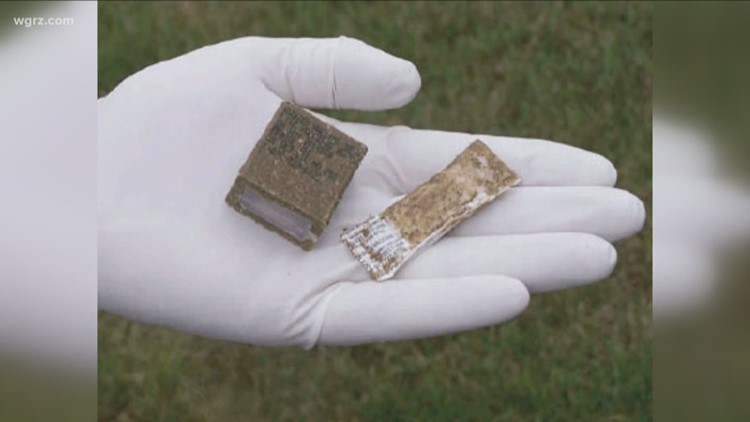NIAGARA COUNTY, N.Y. — Niagara County will be conducting its annual rabies vaccine bait drop next week.
The Niagara County Department of Health announced Thursday that the oral rabies vaccine will be distributed throughout the county starting Aug. 1 to help prevent the spread of rabies in Western New York.
According to the county health department, the bait distribution will be conducted both by hand and by fixed wing aircraft. Hand baiting is expected to get underway from Aug. 1 through Aug. 5. Helicopter distribution will also take place in more densely populated areas between Aug. 1 and Aug. 5. A fixed wing aircraft will then distribute the oral rabies vaccine in rural areas from Aug. 15 through Aug. 18.
The Niagara County Department of Health notes that the dates listed above are all weather dependent.
"During the baiting period, residents may see and hear low-flying aircraft over Niagara and other Western NY Counties (including Allegany, Cattaraugus, Chautauqua, Erie, Genesee, Orleans, and Wyoming). Additionally, Niagara County program staff will help distribute green blister packets by hand and car around Niagara Falls neighborhoods," said Paul Dicky, environmental health director.
To make the baits more attractive to wildlife, the green blister packets are reportedly covered with a sweet attractant. The vaccine is released once an animal bites into the bait.
Humans and pets cannot get rabies from the baits. If you find one, you're asked to leave it alone unless it is found where children or pets play.
Anyone who comes in direct contact with a bait or vaccine is told to wash their hands immediately and to call the New York State Department of Health Rabies Information Line at 1-888-574-6656.
"Rabies is a viral infection that affects the nervous system of raccoons, skunks and other mammals, including people. Rabies continues to be a serious public health concern, and fatal in unvaccinated animals," explained Public Health Director Daniel Stapleton. "Members of our Niagara County community can help by monitoring their children and pets, and by keeping pets up to date with rabies vaccinations."
If you have any questions about the program, contact the county's Environmental Health Division at (716) 439-7444. More information can also be found here.



